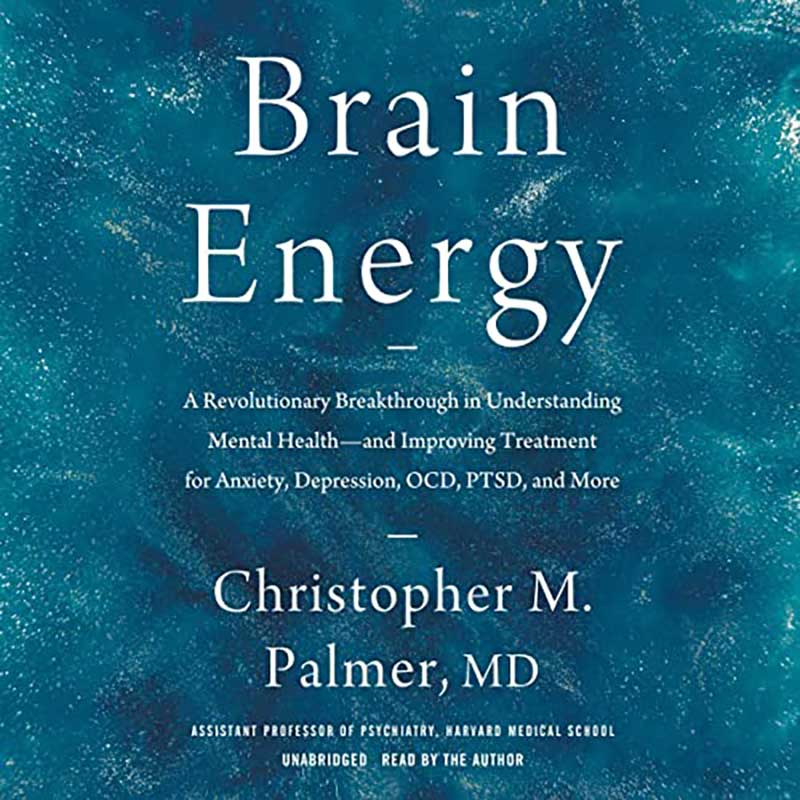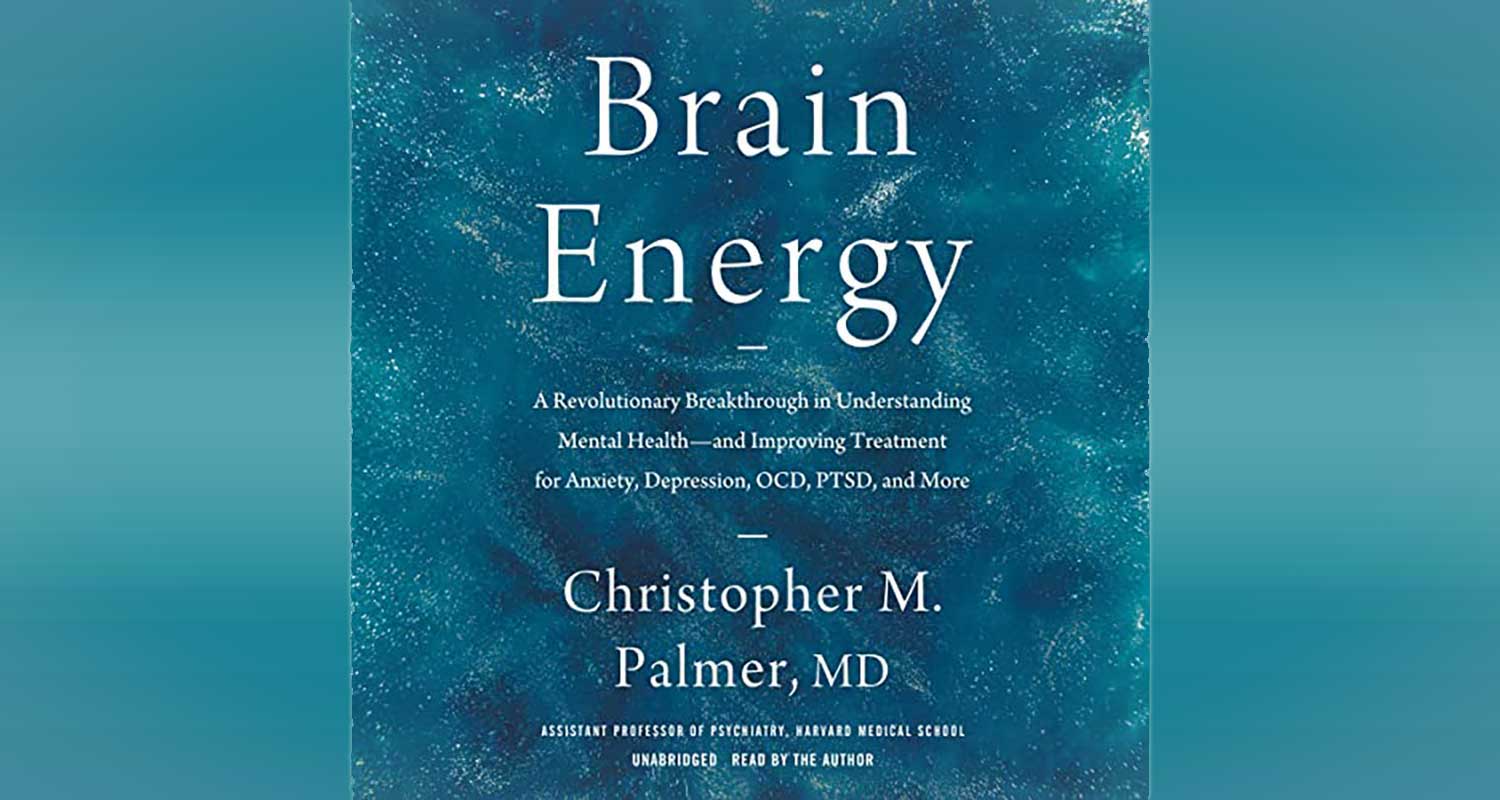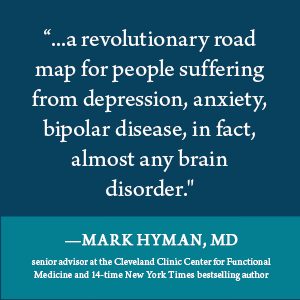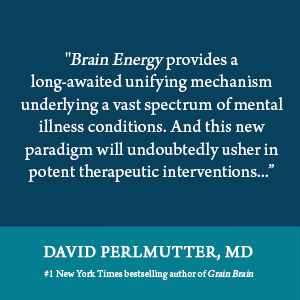Dr. Christpher M. Palmer - Brain Energy


Brain Energy: A Revolutionary Breakthrough in Understanding Mental Health-and Improving Treatment for Anxiety, Depression, OCD, PTSD, and More

5 years ago, I began writing a book on the ketogenic diet for mental illness. I quickly realized that no one would take it seriously unless I did a deeper dive into the science. What I discovered in that process was beyond my wildest dreams! I moved far beyond the ketogenic diet and ended up developing a unifying theory for the cause of all mental illness. I call it the theory of brain energy.
—Christopher Palmer, MD

To illustrate how complicated this can all be, I'll tell you about another study. This one followed 1,700 women at midlife for twenty years to see if exercise prevents cognitive decline. Most people would assume it does. However, after controlling for socioeconomic characteristics, menopause symptoms, hormone therapy use, and presence of diabetes and hypertension, they found that exercise didn't make any difference in cognitive symptoms. They concluded that "physical activity observed in later life may be an artifact of reverse causation." So, the news headline for this study is that exercise doesn't prevent cognitive decline. But this isn't so clear-cut. They "controlled" for diabetes and hypertension, as though exercise is independent of these variables. We know that it's not! Exercise decreases the likelihood of both, and may thereby decrease the risk of cognitive decline, too. We know they are all interrelated. And yet, some researchers and academic journals assume they aren't.
Exercise has been studied as a treatment for mental disorders, with depression being the most studied illness. The results are mixed, with some studies showing benefits and others not. A 2017 meta-analysis looking at exercise as a treatment for major depression included thirty-five studies with almost 2,500 participants. Their conclusion: "Trials with less risk of bias suggested no antidepressant effects of exercise and there were no significant effects of exercise on quality of life, depression severity or lack of remission during follow-up." That's disappointing!
And yet the World Health Organization begs to differ. They issued a report in 2019 entitled Motion for Your Mind. They summarized their findings as follows: "A review of the evidence for the benefits of physical activity for people with depression, schizophrenia and dementia indicated improved mood, slowed cognitive decline, and delayed disease onset . . . " So, what are we supposed to believe? Does exercise help or not? It's tempting to err on the "safe" side and tell everyone to exercise, but if it doesn't actually work, that just sets people up for failure and makes the person recommending it seem less credible.
In otherwise healthy people, it's known that exercise can improve metabolic health. It's known to induce both mitochondrial biogenesis and mitophagy—the two things we are looking to do. This occurs not only in muscle cells but also in brain cells. Increasing mitochondria in brain cells should be helpful. So why don't treatment studies consistently show a benefit?
One reason may be insulin resistance. A study published in Cell found that it may block the benefits of exercise. Researchers had thirty-six people with varying levels of insulin resistance exercise and measured a plethora of biological measures before and after. They found that there were significant differences in energy metabolism, oxidative stress, inflammation, tissue repair, and growth factor responses, with most of these beneficial processes being dampened or even reversed in those with insulin resistance. As I've already discussed, many people with chronic mental disorders have insulin resistance, so this may explain at the cellular level why exercise might be harder for them and why it might not work.
I suspect that the more important issue is that many people are taking substances and/or have lifestyle factors that impair mitochondrial function, and these are interfering with the beneficial effects of exercise. Athletes, trainers, and coaches have long known that it takes more than just exercise itself to improve performance. All the factors that I discuss in this book play a role. If someone wants to improve their physical performance through exercise, they also need to pay attention to eating a proper diet, getting good sleep, and refraining from alcohol and drug use, among other things. For example, as I already discussed, alcohol can damage mitochondria and prevent mitochondrial biogenesis and mitophagy.
This is why we've all heard the advice that if you're training for an important athletic event, or even if you just want to lose weight, you need to stop drinking. Improving metabolism involves many lifestyle factors in combination, not just one.
Medications can also play an adverse role. In theory, any medication that impairs mitochondrial function might prevent exercise from working. One study looked directly at this issue for the commonly prescribed diabetes medication metformin. Researchers had fifty-three older adults participate in twelve weeks of aerobic training and assigned half of them to take metformin and the other half a placebo. Both groups experienced some benefits from the exercise, such as a reduction in fat mass, glucose, and insulin levels. However, improvements in muscle mitochondrial function were abrogated in the people taking metformin. The metformin group had no overall change in whole-body insulin sensitivity, even though the placebo group experienced improvement. These researchers summarized their findings in the title of their study: "Metformin Inhibits Mitochondrial Adaptations to Aerobic Exercise Training in Older Adults." So, in all the studies looking at the effects of exercise for weight loss, diabetes, or mental disorders, we would need to know if any of those participants were taking metformin. If they were, they were likely being set up for failure to improve their mitochondrial function, and this might be the reason some of the studies showed no benefit.
Metformin is one of the "mildest" diabetes medications with the fewest side effects. Many other diabetes medications, including insulin itself, cause weight gain and even more insulin resistance over time. But it's not limited to diabetes medications. As you now know, some psychiatric medications, especially the antipsychotic medications, are known to cause serious metabolic disturbances and mitochondrial dysfunction. People taking any of these medications will likely fail to get the full benefits of exercise. The research on exercise for mental illness didn't factor any of this into their studies.
Mitochondria play a direct role in translating exercise into beneficial effects in the brain. When people exercise, one of the benefits is that they usually develop new neurons in the hippocampus from stem cells. This process has been found to be directly related to both mood and cognitive disorders. The growth of these stem cells into new neurons depends upon mitochondria. When researchers genetically manipulated mitochondria to inhibit or enhance their function, the development of these new neurons was inhibited or enhanced, respectively. Based on this research, it appears likely that if someone has poor mitochondrial function in this brain region, they may not get the same benefits from exercise that other people get. However, if we can restore their mitochondrial health, it's possible that we can change this.

Book excerpt by Dr. Christopher M. Palmer MD
Published: December 24th, 2022
Social Media links:
Twitter: @ChrisPalmerMD
Facebook: Chris Palmer, MD
Brain Energy: brainenergy.com
Website: chrispalmermd.com
Dr. Christopher M. Palmer MD

Brain Energy: A Revolutionary Breakthrough in Understanding Mental Health-and Improving Treatment for Anxiety, Depression, OCD, PTSD, and More




